Operation “Sea Lion” Invading England In 1940? [Part Five]
December 5, 2016 by crew
Well, we’ve drawn up the plans, we’ve weighed the options, we’ve thrown the dice, and now the time has come for us to bring our explorations of “Operation Sea Lion” to an end. Could the Germans really have attempted an invasion of Great Britain in 1940? What would that invasion have looked like? Did they really have a chance?
It’s been quite a journey. Part One gave us an overview of the project. Part Two saw the Germans open their invasion. In Part Three they expanded their beachhead and the British launched their first counterattacks. In Part Four came the climax and final outcome, or at least one possible outcome.
But now we can look back at what we’ve examined so far and really take a deeper dive into Sea Lion’s prospects. What were the Germans’ chances, really? What other plans and time frames can be examined? If the Germans would have failed, WHY? Conversely, HOW could they have won? What factors really would’ve made a difference?
The Case For Seelöwe
So we’ve already established (at length) the prerequisite that for Sea Lion to any chance at all, the Germans must win the Battle of Britain. In fact, it was precisely the Germans’ failure to do this that compelled them to cancel Sea Lion.
But if the Germans win the skies, what then? Let’s take a fresh look at some potentially misunderstood factors.
The British Forces
One thing that should be kept in mind is just how weak the British Army was at the time. The B.E.F. represented some 70% of the British Army, and the B.E.F. had just suffered a catastrophic defeat that had cost them virtually all real war-fighting equipment.
On the other hand, other non-British Commonwealth units like the New Zealand and Canadian Divisions were deployed in Britain and would have helped in the defence. However, it seems that other units like 7th Armoured, 6th Australian, and 4th Indian Divisions could not have been brought back to England in time to face an invasion in 1940.
With the British it’s not a shortfall of manpower, and certainly not courage. It’s equipment and preparation. Many World War II campaigns demonstrate that vast reserves of manpower don’t help if you don’t have the right vehicles, heavy weapons, munition stockpiles, training, doctrine, all of which the British were desperately short on in 1940.
The German Forces
The Germans are also somewhat ragged after the Battle of France. However, because Operation Sea Lion would have been smaller than Case Yellow or Case Red, it’s easy to imagine that some German divisions and corps could have been “condensed” into the required fully-manned and equipped invasion divisions in September of 1940.
For instance, the nine or ten panzer divisions in the French invasion could have contributed to rebuilding the four that would have participated in Sea Lion. Despite combat losses and maintenance problems, it seems and Rundstedt’s Army Group A could have been ready to launch a real invasion in very short order.
This presumption breaks down, however, when it comes to airborne forces. One can’t just “transfer” infantry to the paratroopers without weeks of training, to say nothing of transports, gliders, etc. A lot was expected of airborne forces in Sea Lion, and frankly the plan has glaring holes where there just aren’t enough of these elite troops.
The Royal Navy
The British Royal Navy is probably the most overestimated factor in Sea Lion. Often seen as a tremendous obstacle to any attempt to cross the Channel, the fact is that the Home Fleet only had one carrier and five battleships / battlecruisers in the fall of 1940, all of them at least 25 years old.
Furthermore, German aircraft and submarines showed that they were very capable of sinking these assets. The Home Fleet was hopelessly over-prepared for the past war, and honestly couldn’t keep Great Britain FED without massive support from the United States which was not forthcoming in the summer of 1940.
All that said, while the Royal Navy seems incapable of stopping an initial invasion, they could have easily strangled said invasion once the weather started grounding the Luftwaffe in October and November. British dreadnoughts do not need sunny skies to sink German transport ships, after all.
Disunity Of Command
Without a doubt one of the worst obstacles to Sea Lion was presented by the Germans themselves. Simply put, there was no unity in the higher levels of German command. Throughout the war, bad liaisons, miscommunication, poor coordination, and outright rivalry plagued German planning and operations, costing them many battles.
Although the OKW (Oberkommando der Wehrmacht - Supreme Command of the Armed Forces) technically had command over the Army, Navy, and Air Force, they really didn’t. Also, the OKW didn’t have a singular head, like Eisenhower would be over SHAEF (Supreme Headquarters Allied Expeditionary Forces) later in the war.
Like many dictators, Hitler often kept authority deliberately divided between rival organisations so any real power rested ultimately with him. Indeed, only Hitler could command the Army, Navy, and Air Force with the coordination required by an operation like Sea Lion. But when a rank amateur like Hitler is your military commander …
German Victory Conditions
So if the Germans were going to succeed in Operation Sea Lion, what kinds of things would have to happen? If such a victory were possible, what would it have looked like?
We’ve already stated the Germans have to win the Battle of Britain. Taking an honest, unemotional, and unprejudiced look at the state of the British Army and the Royal Navy in 1940, it’s clear that the only think saving England from invasion was the Royal Air Force, which of course is precisely what happened historically.
Assuming the Germans could cripple the RAF in the short term (they couldn’t have done it permanently because of the range of German fighters and RAF bases in Wales and Scotland), it’s pretty clear that landings were possible. However, landing troops in Sussex and Kent, and conquering Great Britain, are two very different things.
Let’s start from a simple assumption: Germans always have to win QUICKLY. All their great victories, from the Franco-Prussian War of 1871 to Manstein’s “Backhand Blow” in 1943, all are won very fast. Germany is the boxer that HAS to knock you out in the first two or three rounds. If you’re still standing in round four, you’ve won.
So could the Germans have broken out of their beachheads in Sussex and Kent? Honestly, I believe they could have. It’s when they reach London and the line of the Thames that things get very difficult. London would have been a bloodbath, a “Stalingrad West,” not terror-bombed into surrender Warsaw or Rotterdam or left open like Paris.
Also, keeping Sea Lion supplied over the English Channel, through a long and expanding campaign, becomes unlikely. As said above, once the weather grounds the Luftwaffe, the Royal Navy can now come back into the English Channel and start sinking German supply convoys. The Germans must win well before that.
The Politics Of Sea Lion
Any real chance of German victory seems reliant on some kind of political collapse or disintegration of morale. This seems remote but it IS possible, given our scenario of a German victory in the Battle of Britain. The Battle of Britain is what made Churchill an icon of resistance, but if the Germans win that battle, he’s still “Mr. Gallipoli.”
Please bear in mind that Winston Churchill only became Prime Minister on May 10, and was far from a universal choice. Foreign Minister Halifax was still a major opponent who may have favoured a negotiated peace along with others in Parliament. Many saw Churchill’s defiance as foolhardy in the face of constant German victories.
Historically, Churchill needed Neville Chamberlain of all people to help hold his coalition together through the summer of 1940, and that was while WINNING the Battle of Britain. A German victory over the RAF, followed by successful landings, just might have ousted Churchill when the British government felt forced to offer peace.
Summation
Having considered all these factors, where are we left with Sea Lion? Honestly, once we assume a Luftwaffe victory in the Battle of Britain, a successful German landing on British shores becomes (in my opinion) surprisingly feasible.
Like all German campaigns, however, the crushing factor is time. If the Germans can win quickly, there is very little they can’t accomplish. If their landings proved successful, the shock (combined with the presumed crippling of the RAF) just might have caused a crisis of confidence in the British government. If this happens, the Germans can win.
If, however, the Germans can be contained, even for a short while, exponentially-increasing difficulties in logistics, supply, reinforcement, and shipping spin rapidly out of control. Once the weather deteriorates to the point where the Luftwaffe cannot suppress the British Home Fleet, Sea Lion is doomed.
Thank You!
This concludes our article series on Operation Sea Lion. By no means does this have to be the end of the conversation, however. Comments or questions below are certainly welcome, as well as in the Sea Lion thread we now have going in the Historical Gaming forum.
As always, I would like to thank the beasts of war team, especially @warzan for letting me publish, @brennon for being such a great editor, and @lancorz for the amazing support graphics and layout work. Also, I’d like to thank @dignity and @johnlyons for the great Weekender interview.
Most of all, however, I’d like to thank the community members who took time to read through the articles, especially those who supported the progress of the series through their many insightful comments. Community interaction is what I t’s always about, and we wouldn’t still be doing these articles without you.
If you would like to write for Beasts of War then please contact us at [email protected] for more information.
"The B.E.F. represented some 70% of the British Army, and the B.E.F. had just suffered a catastrophic defeat..."
Supported by (Turn Off)
Supported by (Turn Off)
"Without a doubt one of the worst obstacles to Sea Lion was presented by the Germans themselves. Simply put, there was no unity in the higher levels of German command..."
Supported by (Turn Off)































![TerrainFest 2024 Begins! Build Terrain With OnTableTop & Win A £300 Prize! [Extended!]](https://images.beastsofwar.com/2024/10/TerrainFEST-2024-Social-Media-Post-Square-225-127.jpg)
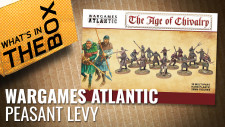
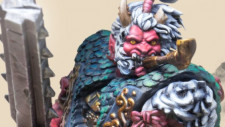
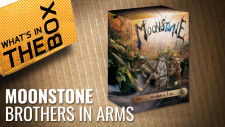






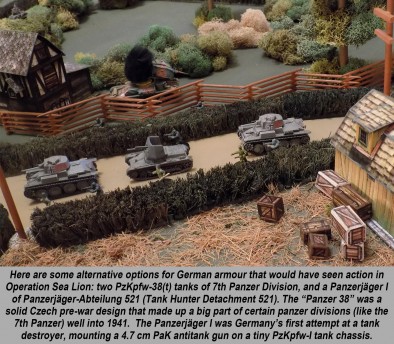
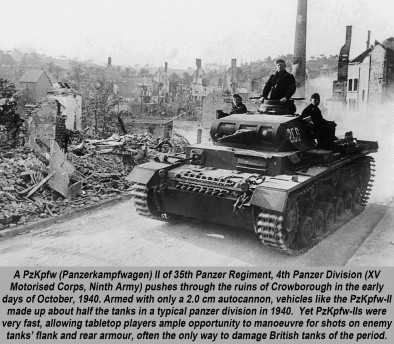
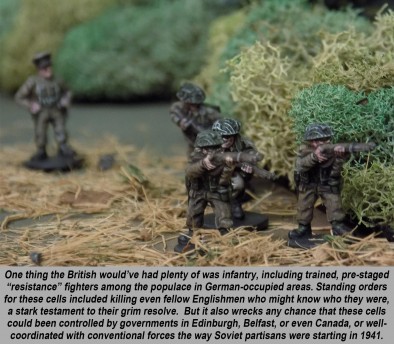
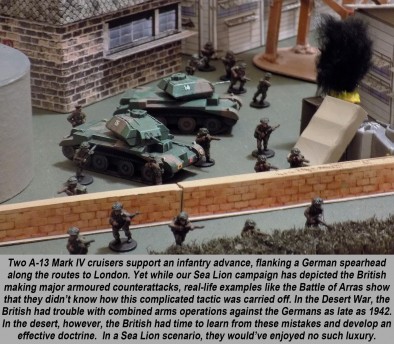
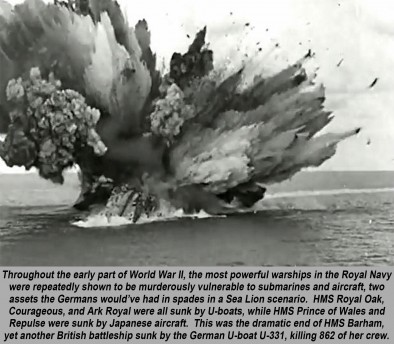
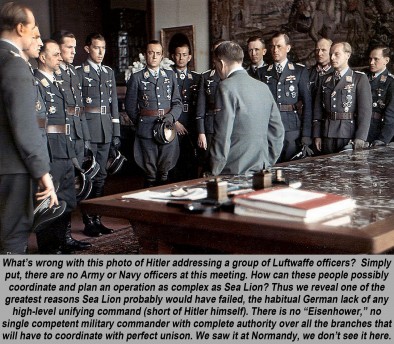
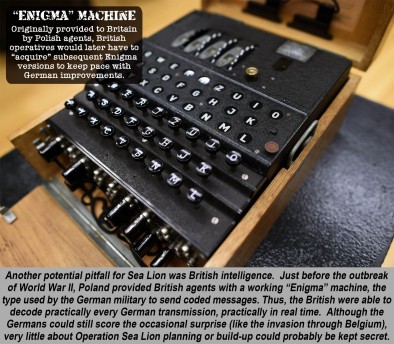
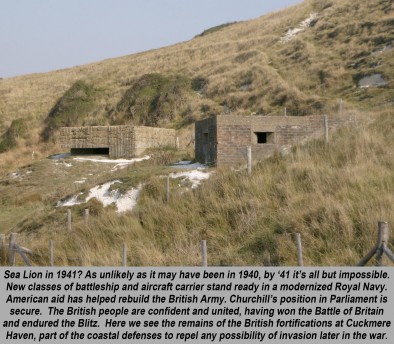
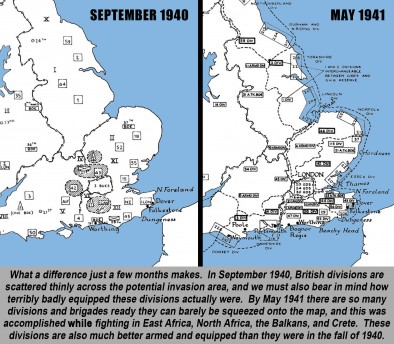
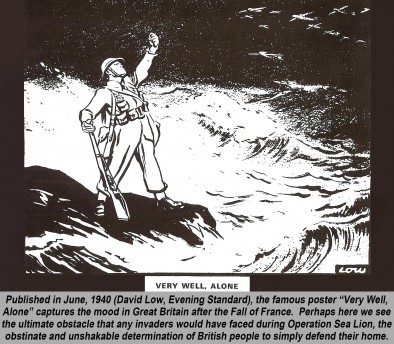


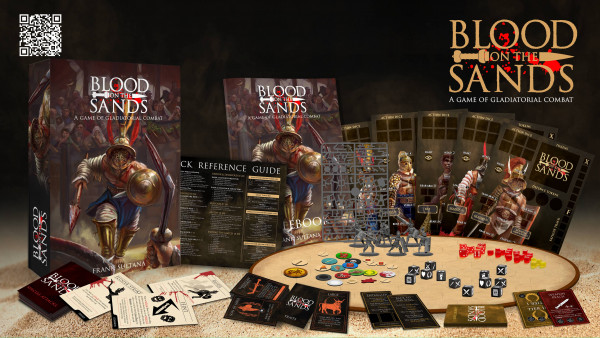

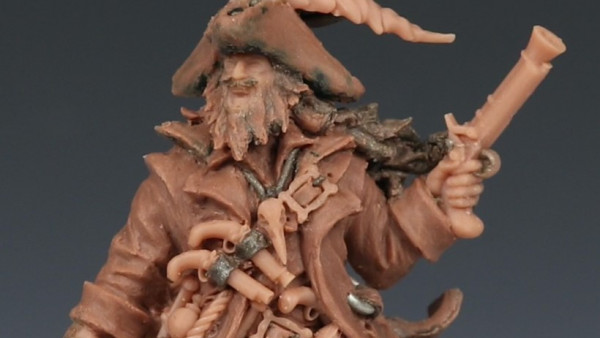
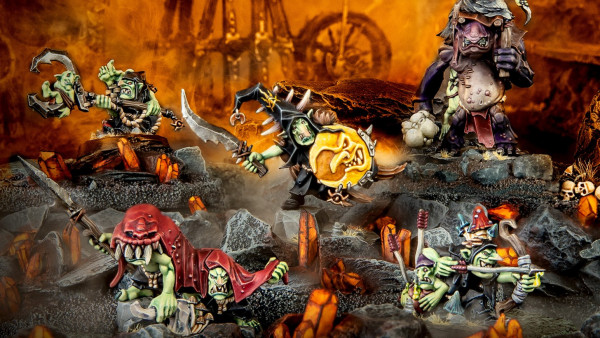
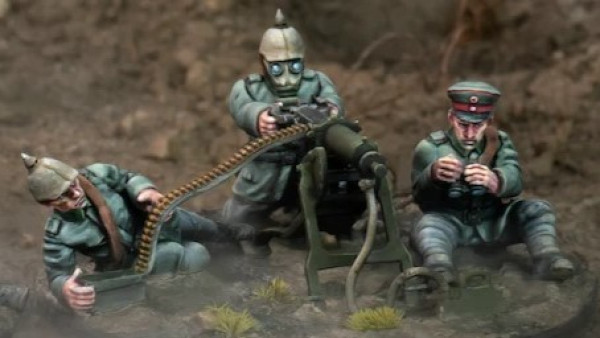
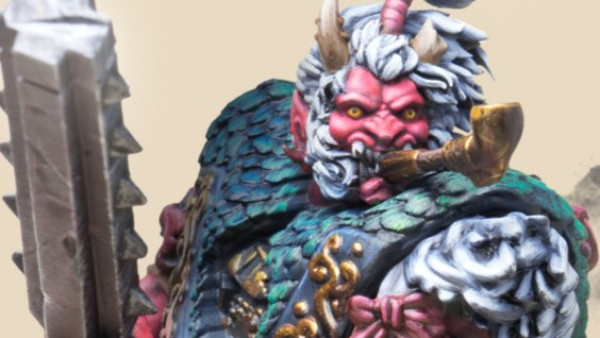

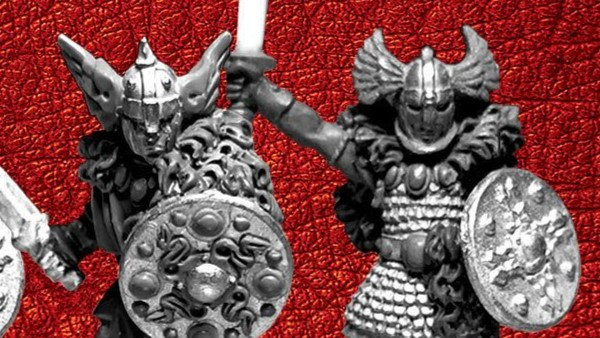
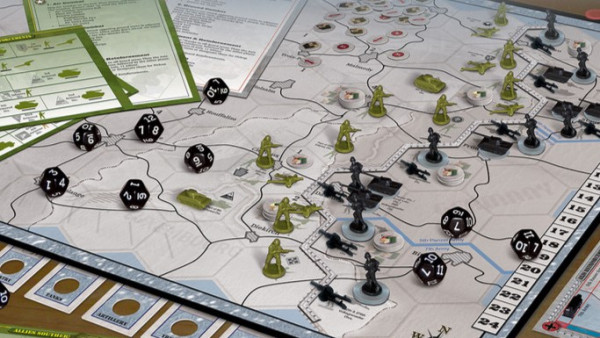
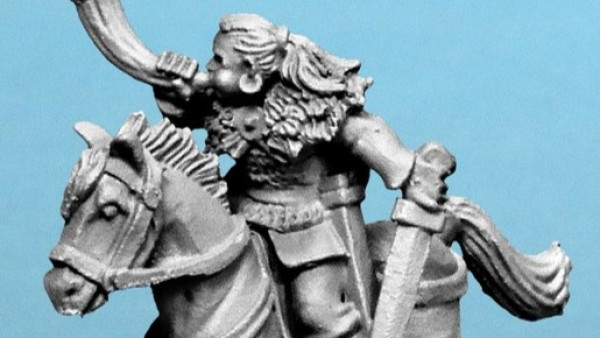









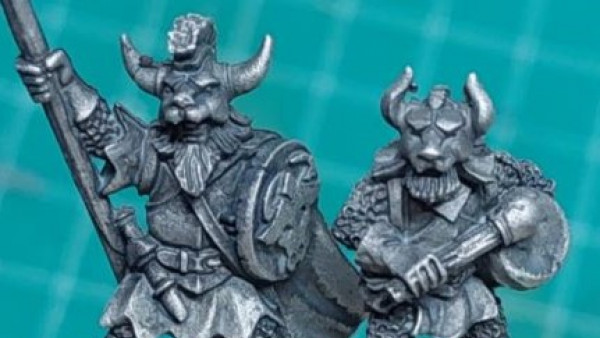

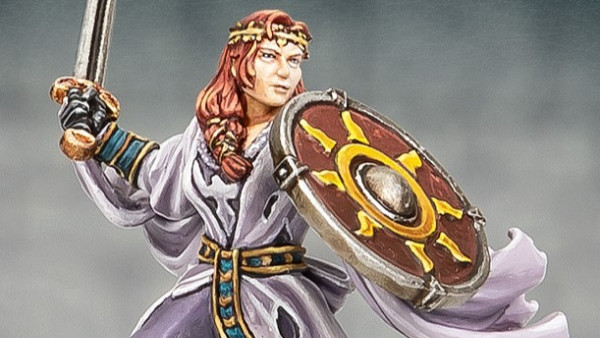
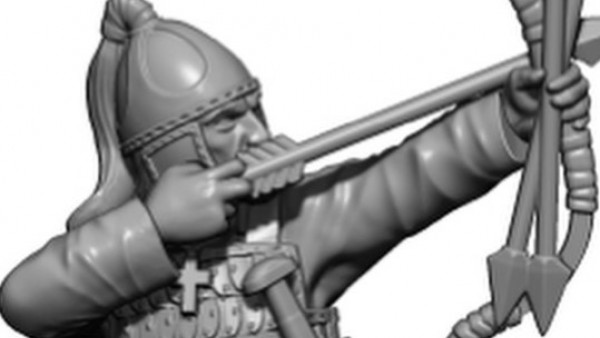
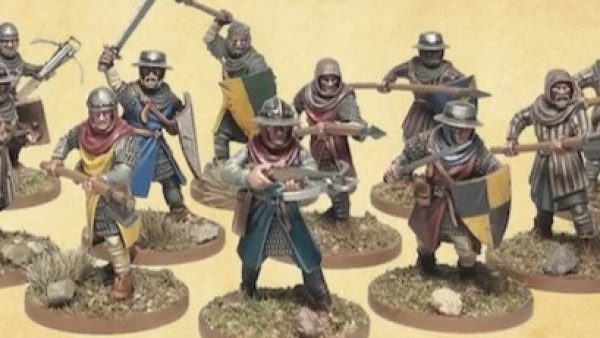
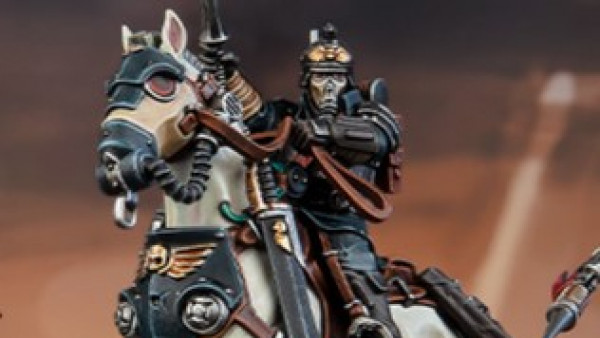
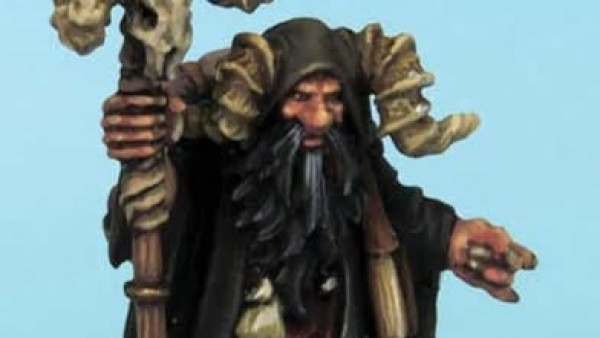
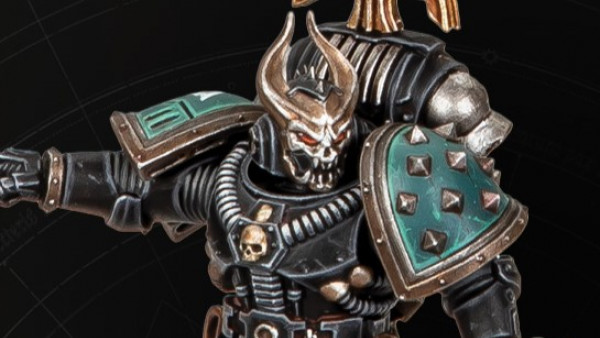
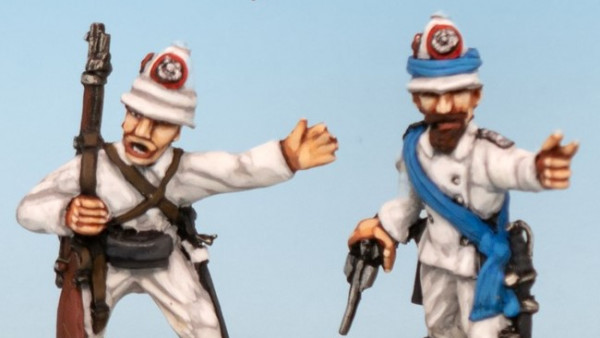
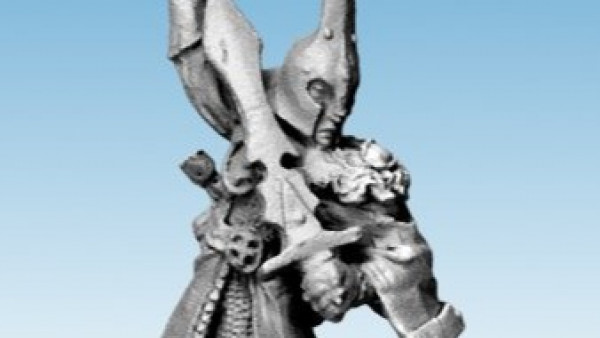
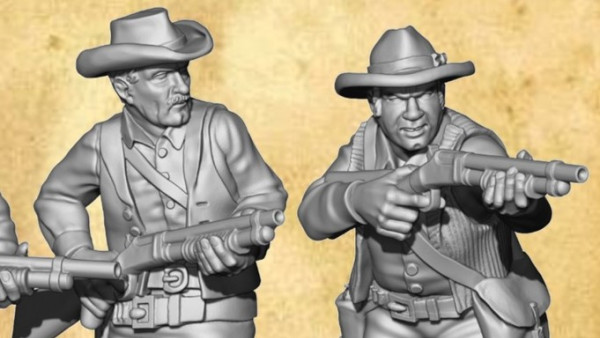


I was wondering if a French resistance woukd play any part delaying troops to the French seaports ,destroying train lines etc It might buy the British a bit more time in getting defences more properly prepared,organising a more effective civilian resistance and all that goes with that
Unfortunately the French Resistance was nothing more than many small independently operating groups that fought from time to time more against each other than against the Invaders back in the days. So I doubt that these people would be a great help for the British.
Great question, @torros . 😀 There is the famous example of the French Resistance delaying the 2nd SS “Das Reich” Panzer Division for weeks as it tried to redeploy from the south of France up toward Normandy after the Allied landings of 1944. However, this is 1944. I think in the summer / early fall of 1940 (S-Day is barely three months after the French surrender), the French Resistance wouldn’t have formed to such an extent, much less been trained, coordinated, and equipped do such an extent by the SOE, OSS, and other organizations. I would certainly count it as… Read more »
Thanks, @setesch . I concur, especially in a 1940 scenario. Of course there is Eisenhower’s quote that the French Resistance’s help in Overlord was worth “15 extra divisions” (200-300,000 men). But again, this is in 1944 (not 1940), and of course the Resistance in this case is embedded behind the occupying Germans, on defense ON that ground. If the battle is in England, the French Resistance is less of a factor.
@oriskany great conclusion. I do agree in most of the points. But… there is one question left adressing the Royal Navy’s Home Fleet. Would there be any significant Ship left when the weather turned? The Luftwaffe and the U-Bootwaffe would have about one to two months time to suppress the Navy. If the Battle of Brittain would be won by the Luftwaffe, the Navy would be left alone against Stukas and Heinkels with Torpedoes. So maybe the supplies could get through after some initial raids.
This is a great question, @setesch , and really a tough variable to predict. Basically, I envision two basic scenarios: 1) “Aggressive British” – The British are terrified, desperate, and enraged as German invasion troops hit the landing zones and assault beaches. They send their heavy surface naval elements into the Channel to shut down the German convoys at once. Here, the Royal Navy takes steep losses to German aircraft and especially to U-boats. Three things to remember, though: 1a) As others have brought up on these threads, the Luftwaffe hadn’t put as much emphasis, training, or equipment into maritime… Read more »
On the other hand we seem to forget all the other assets. Like British submarines and German Cruisers/Destroyers. As I read few seconds ago, the Germans had serious issues with their Torpedoes. The fuses had often malfunctions, so my point with the Torpedoe Heinkels and the U-Bootwaffe won’t work any longer 😉
Taking the results of Operation Weserübung into account we can assume that the Deutsche Kriegsmarine wouldn’t be as effective as I thought.
I’m not sure about German destroyers, but according to the plans I’ve found, those few German cruisers / pocket battleships that were not sunk in Norway or still under refit / repair . . . were being sent into the open Atlantic to “draw off” British naval assets from the defense of the home islands. Given the British advantages in Enigma / ULTRA, I don’t think this would have worked. So we’re left with U-boats and German aircraft, which (despite their limitations in 1940) are nothing to scoff at. If World War II teaches any “naval lesson,” it’s: Battleships are… Read more »
This has been a great series. Plenty to think about.
Luckily for us, if the RAF and Royal Navy were unable to stop the Nazi tide we still had Captain Mainwaring and his elite unit.
Thanks very much, @wesadie1969 . The Home Guard has certainly been proving its worth in some of our support thread games. 🙂 They barely squeaked out a white-knuckle victory against elite German paratroopers in a 20-turn ParaLeader game, including one insanely lucky and cinematic moment where a Home Guard bicycle section actually took out a platoon of fallschirmjaeger. Okay, more precisely the Home Guard bicycle section managed to take the fallschirmjaeger WITH them as they were likewise destroyed, and even this was figured to be almost 200-1 odds against. But yeah, the Home Guard has definitely been making its presence… Read more »
Would have loved to have seen the Home Guard / Fallschirmjaeger showdown.
Once again @oriskany thank you for another great series, don’t let it be too long until your next.
Well, it wasn’t “in miniature” but here is the actual turn it happened in hex-and-counters Panzer Leader. 😀
http://www.beastsofwar.com/groups/historical-games/forum/topic/operation-sea-lion-addl-content-games-participation/?topic_page=2&num=15#post-184437
Picture:
http://www.beastsofwar.com/wp-content/uploads/forumfiles/sea-lion-19-fallschirmjaeger_t16.jpg
What an epic series of articles!
Thank you @oriskany for giving us so many ideas for our games, much appreciated man!!
And I agree, a Blitzkrieg would have been their only chance of victory. Otherwise who it would have become Germany’s very own Vietnam I think. Not a war of attrition but Guerilla warfare.
Thanks very much, Thanks very much – @suetoniuspaullinus . Speaking of “ideas for games,” I’m listening to the Justin-John Sea Lion rematch at the moment. We’ll see if the Germans can score a win this time. 😀
#%!&!! Time for BoW2!
This bl**dy chat room window obscures my window and I’m writing blindly..
The OKW wouldn’t approve at all!!
Rant over.
I know what you mean. 😐
Very good series, as always from Mr O! Can’t wait to see what gets the Oriskany treatment next! It’s good to see a fresh, dare I say it, revisionist approach to Sealion as it’s often disregarded out of hand as doomed to failure from the outset. One thing often touted, and to which I agree with to a degree, is the likely inability of the Fallschirmjäger to be adequately at strength and the lack of transports with which to transport them after losses in the preceeding campaigns. While this is true to a degree, 7th Fleiger actually began a series… Read more »
Thanks, @piers . 😀 While I would say there is a “victory window” for the Germans in Sea Lion, it is exceedingly small. I don’t give them a very large chance for victory in the long run. Earth-shaking revelation, I know. 😀 But that’s where the facts, trends, and plausibilities seem to point. As you say, no one really knows. In the end it’s all just educated guesswork. And while we may not have wound up with a surprise outcome, I think we’ve shed some light on the “how and why” campaigns like Sea Lion (real or imagined) really work.… Read more »
I think you got it in one politicians were/are the weakest point of many country’s quick to get into wars quicker to get out if their arse is in the gun sights a great series of articles @oriskany
That’s usually the case, @zorg , ain’t it? Thanks, and glad you liked the article series. We’ll keep posting battle reports and the like on the support thread for a little while.
yup you’ve still got dover to retake.
😀
A very fitting conclusion to the series. I love how you broke it down to the bare facts. However, best “fact” why it would’t fail… “The obstinate and unshakable determination of the British people to defend their homes”
Sometimes that does happen. All the spreadsheets and plans, all the logistics, all the timetables and OOBs and the ToEs. etc . . . You can “McNamara” a campaign to death – but sometimes in the end it just comes down to the “weaker” side f***ing refusing to be beaten. Vietnam proved this . . . three times (French, Americans, and Chinese). Afghanistan, too (British, twice – then Soviets, then Americans).
I am wondering, would the British have used the naval assets of the other allied countries that had taken refuge there, to hinder the invasion efforts?
The Dutch for example, had four submarines (O-21, O-22, O-23 and O-24) up at Dundee at the time. Would they have been used to attack the invasion ships, be used to hunt the German U-boats or would they have stayed put around Dundee?
There where also several Polish submarines stationed at that time in Britain. So the British could have used them.
I seem to recall that they did use the Polish subs in the Mediterranean during the war, so if the home nations are under thread – I bet they would use everything including the kitchen sink
Great question, @shanaar . I must admit I did not know about the Dutch submarines. SO you give three choices for them … Attack invasion ships: Definitely possible. This is what submarines were made for in those days, and German ASW (antisubmarine warfare) assets were exceedingly thin. No ASW aircraft to speak of, and only a handful of Z-class destroyers. Hunt German U-boats: Very unlikely, in my opinion. To my knowledge ( @commodorerob might back me up on this ) submarines did not hunt or fight each other in WW2 the way they do nowadays. I think there was one… Read more »
Definitely true, @rasmus . The Royal Navy has a lot of assets in the Mediterranean, and the “Chase the Bismarck” incident in May 1941 shows just how fast they could have / were willing to shift assets out of the Mediterranean up to the Atlantic in times of emergency. They may not have been there to slow or stop the initial invasion, but I firmly believe these ships and task forces would have been pulled up to Great Britain in case of an invasion. The Bismarck wasn’t nearly as big a threat as an actual invasion of England, and still… Read more »
@oriskany the majority of sub hunting was done by surface ships with depth charges and hydrophones (sonar was in its early days), my knowledge of submarine warfare is limited, but from what I do know the submarines general had a few purposes.. 1. scouting for information about the enemy 2. taking out surface ship mainly supply ships 3. laying mines there is as far as I know very little sub v sub action in ww2 and most were collisons. A submarine was armed with deck guns which could only be operated on the surface or torpedos which require aiming with… Read more »
Yeah, to my knowledge (and even this is sketchy) there was only one sub hunting down and killing another sub on purpose . . . a British sub tracking down one of the last U-boats in the very last days of the war (again, may have technically even been after the war ended), the German U-boat was trying to get a safe harbor up in Norway somewhere? Subs of the day usually had four-six forward torpedo tubes (somewhere in the 21″ range), one-two aft tubes, a 4-5″ deck gun, and maybe some MGs or 20mm cannon for air defense while… Read more »
@oriskany what is your source for the RN Home fleet disposition? The information I have says that both the battleships Nelson and Rodney were in the Home fleet which whilst not brand new they were only 15 years old in 1940. Along with 2 other Battleships there was 1 Battlecruiser squadron, 3 Cruiser Squadrons 4 destroyer flotillas and 4 sub flotillas, plus a lot of odds and sods. and potentially 2 Carriers depending on the events with Ark Royal and Furious. My view is that the battleships and battlecruisers would not have been the main thorn in any german invasion,… Read more »
Good afternoon, @commodorerob – My source is http://www.niehorster.org/ – which has a series of specific and very detailed pages for Home Fleet assets for Sea Lion, dated for 07 September 1940. Yes, Rodney and Nelson were both there. However, I did not include the Rodney because records show it was undergoing turbine repair and not operational for the specific period in question. You’re right about their age, though. There’s only one other battleship I show is HMS Barham. Two battlecruisers, Hood and Repulse. This is why my records show four battleships / cruisers – Nelson, Barham, Hood, Repulse. My records… Read more »
@oriskany thanks for the source I was not aware of this, I have to admit I have not read all the discussions on the previous articles so missed the one about the cruisers. You are correct about the Ark Royal leading the attack at Taranto (another really interesting part of the war at sea) however that attack did not occur until November 1940 so it is plausible that she would have been available. On the use of subs by the British I would uggest they would have changed tactics to defend at all costs. Churchill would have given the orders… Read more »
Indeed, Rodney was there. BB 29 Capt. F. H. G. Dalrymple-Hamilton – 2nd Battle Squadron under RAdm L. E. Holland – Scapa Flow.
http://www.beastsofwar.com/wp-content/uploads/forumfiles/sea-lion-49-home-fleet-listing.jpg
We’re just showing HMS Rodney was under turbine repair at the time.
nice graphic:-)
You done it again @oriskany great stuff.
And yet again you point out that amateurs does strategy, while the professionals does logistics, an invasion, over hard terrain like the channel is won or lost in the logistics depo
Which is the worrying issue…
Logistics is a dirty word in the Wehrmacht.
Of course I may be biased by my time in the military, as a supply poag “in the rear with the gear.” You know how it is, no matter who you are, your job is the most important in the whole endeavor, the whole organization would fall apart if it wasn’t for your tireless and under-appreciated efforts. 😀
Finally had the time to read this and the previous part! Good job @oriskany and thanks for the thumbs up.
No worries at all, @yavasa . Glad you liked the series!
Another thing maybe worth considering and it is something I think that would effect thepublic reaction to German invasion is what would have happened if Lord Harris had accepted the position of PM in May 1940. I suppose as suspected he would have tried to make peace with Hitler but I don’t think they would have the same determined spirit as they did under Churchill and Hitler might have been tempted to annex the country anyway
Great point, @torros – I feel that the general conception that Churchill was a rock-solid leader with a secure position is largely colored by our retrospective view back through the victories of the Battle of Britain and subsequent events. At the time, the situation was substantially different. And if we change the outcoe of the Battle of Britain (a prerequisite to enable any plausible contemplation of a Sea Lion type operation) . . . Even the most cursory research (i.e., Wikipedia 🙂 ) shows . . . Churchill was still unpopular among many Conservatives and the Establishment, who opposed his… Read more »
I have to disagree. Once an invader steps foot on British soil, there would be no surrender. Both my Grandfather’s were in the service, and one just back from Dunkirk. Both mentioned that period to me and made in known on no uncertain terms that resistance would have been bloody and to the very end. Don’t mistake politics for the public will to resist an invader. A German landing would have met a violent resistance. I once asked my Grandfather who returned from Dunkirk what he would have fought with, given the state of things in August and September 1940.… Read more »
I can’t disagree with anything in your post, @piers . For the populace facing the actual invasion or any occupied zones behind German lines, there is no question of giving in. Records show the Home Guard guerrillas getting the standard order: “Take two or three with you.” These men knew they were going to die. Their first order in their seal envelopes were often “kill the person who gave this to you” so German interrogators could not compromise these resistance networks. These people were serous about what had to be done to resist an invasion. I’ve also seen some material… Read more »
A fantastic series all up @oriskany. It is one thing to recite history and it is another to put into practice what you have learned. I think the what if’s gets us to focus on the latter. Your research skills and insight into what you have discovered has really shined through in this series. The replies and questions that this article has generated from the community has been just as amazing. So thanks to all that has made this a very enjoyable read. I will certainly post a far more detailed reply before your Sunday as for the moment my… Read more »
Thanks very much, @jamesevans140 – It’s been fun. Indeed this series has generated more traffic than any series I’ve done except BattleTech (I don’t think I’ll ever beat that score). 😀 Yes, it’s now beat the American Revolution series, the WWDDC series, and the World War 2.5 series.
Not that I *ahem* keep track or anything. 😀
Indeed, awesome participation and support from the community (especially guys like you), for which I am very grateful.
Have a great time with your family!
I had a lot of fun that’s @oriskany. In March we have a local public holiday celebrating the foundation of our city, it is the last of the hot weather and so we tend to party it up a bit. I think as a result of this holiday I have a suspiciously high number of grandkids born in December, 50% of them in fact.
Awesome. 😀 Hope you guys have a great holiday season. I’ll be in touch on the Uncle Jimmy thread and maybe toss a little more material on Sea Lion forum thread.
A very belated thank you for an excellent article series. Interesting and educational. I believe that Churchill being toppled following the defeat of the RAF would have been a better than remote chance. He was hardly a popular choice to become PM, especially from within Westminster and had a series of ‘black marks’ against his name. The window to remove him swiftly would be open at this point. The big question is whether anyone would have moved against him after a German beach landing – would such an event have united everyone behind the current PM? I think it may… Read more »
Some great points here @redvers, especially about Mr Churchill. This side of the war we are taught about the great man, the war hero and the man who saved England. We tend to forget that before the war he was the fair weather fellow swapping political parties with the wind, the glory and medal chaser with total disregard for his fellows. Yet as the clouds of war were gathering he was the voice in the wilderness that the people tentatively came to. So I agree completely that his time as PM would have been on razors edge. My group of… Read more »
Excellent post @jamesevans140 and you make a number of interesting points regarding the RN and U boats at the time. My uneducated view is that the RN carried, if nothing else, the reputation at the time. Looking back, it might be that this was undeserved due to the age of the fleet however, at the time, did this impact Germany’s view? How strong was the RN reputation in 1940? As you point out, Churchill led a defiant rally before becoming PM. Chamberlain favoured Lord Halifax, as did a lot of the political and social elite at the time but Halifax… Read more »
@redvers I believe your initial opinion of the RN is correct. At this moment of time it is the most powerful and best trained navy in the world. Possibly the most advanced as well with radar already being installed in its latest designs. However it faces two issues. Firstly it is now spread very thinly across the globe protecting its interests. Secondly air power has reached a point where it can sink battleships with bombers and Germany has the channel totally covered by bombers. Personally I am used to wargaming naval battles in the Pacific and Indian oceans, so to… Read more »
A really fantastic set of articles, im preparing slowly a 28mm Sealion campaign, probably using Combat Patrol by Buck Surdu, but i like the look of the Panzer Leader game as well, i am wondering, where do you get the maps from (Folkestone) and counters from?